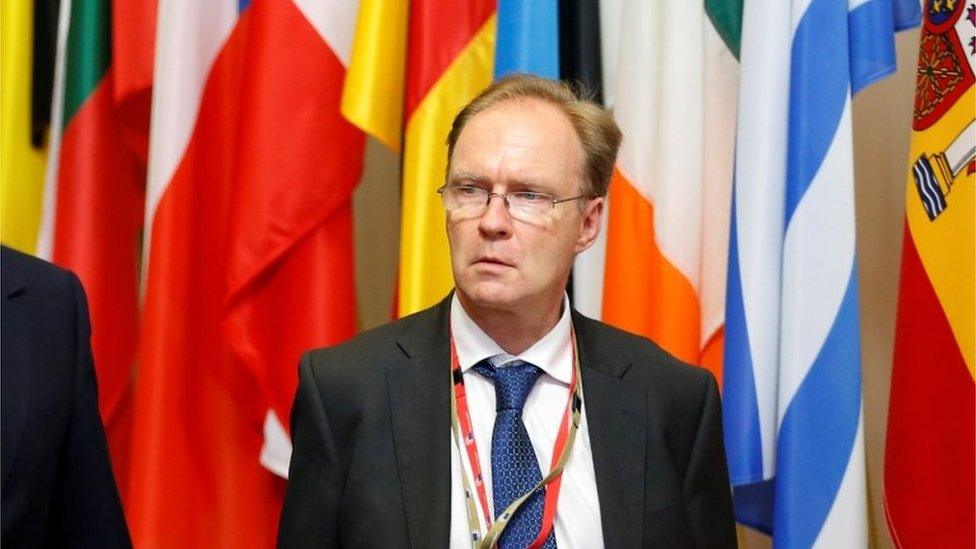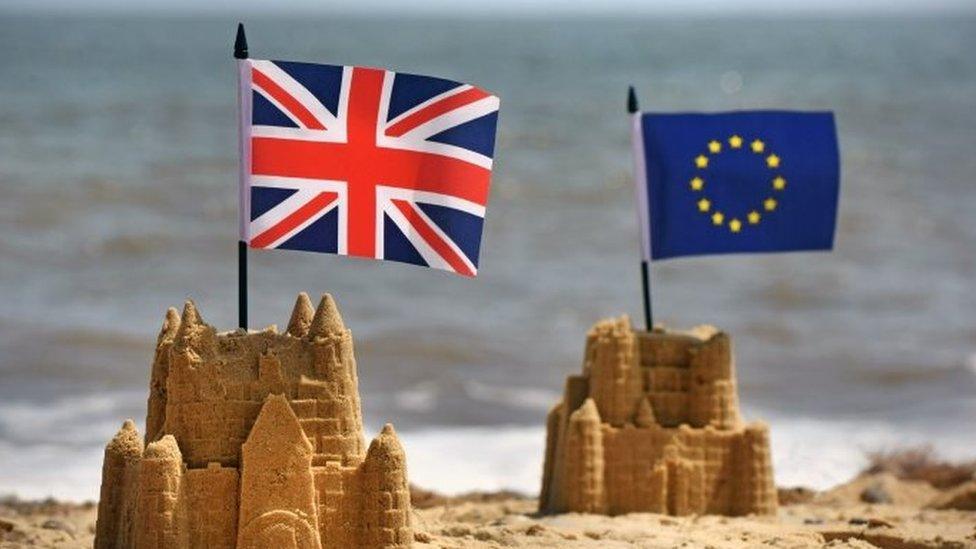Has the government got a clue? The business view.
- Published
- comments

There is a lot at stake for business in the upcoming Brexit negotiations so when there is a crack between government and the civil service it's perhaps not surprising that businesses express concern.
I don't know exactly why Sir Ivan Rogers resigned but what I do know is that his recent warning that a trade deal with the EU could take 10 years to thrash out is not seen as outlandish in some sectors.
One banking chief recently privately concurred it might take between five and ten years to do a deal; another banking executive told me today that the dismissal of Rogers's advice as unhelpful naysaying rather than a considered, if inconvenient, truth was "worrisome".
Does that mean that the business community thinks the government thinking is "muddled", to borrow Sir Ivan's expression?
There are two schools of thought.
'Receiving mode only'
The glass half empty view is this. By now, we should have much more clarity on the government's approach to key questions like whether we want to stay in the single market, the customs union and whether we would like a transitional period after March 2019 to allow more time for business to adjust.
The glass half full view is that seeing as we can't start negotiating till after March, why rush out with some roadmap now? Why not take maximum time to canvass business on their needs and in the meantime keep your negotiating options open.
By and large the senior executives I have spoken to see the glass half full.
Most have told me that after a slow start they have been impressed with the level of government engagement they have experienced. Our biggest companies are having no problem getting air and face time with the relevant government departments and David Davis has come in for particular praise for shaking off his earlier complacency and being thoughtful about the challenges presented.

Big complex businesses are, as you would expect, contingency planning
However, they also told me that while the government may be listening, it's not saying much in return.
One senior executive told me, "the government has been in receiving mode only, there is no detail being transmitted back and there are often mixed messages from the Treasury, the Department for Exiting the EU and Number 10".
The overwhelming view is that the silence does not imply there is a master plan which is being kept under wraps, but rather, the absence of a fully formed plan. Sir Ivan's letter will only reinforce that view.
So, while the clock ticks down to the triggering of Article 50, big complex businesses are, as you would expect, contingency planning. They don't want to press the button, but they need one to press in emergency. For multinationals that means moving some functions and some people to the EU.
Beach towels are being draped over European loungers as we speak ahead of any potential summer rush. That means submitting regulatory documents, securing premises and recruiting local European experts to manage any transition.
But most are looking for reasons to stay. Another executive told me that even if they spend tens of millions on contingency arrangements, they would still rather mothball the new arrangements and stay where they are.
As he put it - "we'd rather have the button behind the glass - and not have to break it."